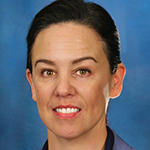Coronavirus (COVID 19): The City Official’s Role
Visit the KLC COVID-19 Resources page.
Elected city officials are community leaders, employers, problem-solvers, and even local champions when problems arise. When a public health emergency arises, citizens will look to our elected officials to lead. COVID-19, (a.k.a. Coronavirus), may ultimately present just this type of emergency.
COVID-19 is a respiratory disease that is rapidly spreading worldwide. Kentucky statutes and regulations detail the response process when the state experiences a public health emergency caused by a communicable disease, like COVID-19.
City leaders first and foremost will be called upon to provide answers and information to citizens, even to quell misinformation and panic at times. It is important to educate yourself and to confirm any information you receive with verified resources available through the Centers for Disease Control and Prevention (CDC) or the Cabinet for Health and Family Services (CHFS). The CDC has developed an online resource to help prepare communities.
The CHFS has created an online resource which contains an updated situation summary on COVID-19. This page provides scientifically reliable information, links to the CDC website, and information on the CDC health recommendations for response to this outbreak.
Additionally, Kentucky Health Alerts is a service offered by the CHFS with up-to-date information pertaining to all health matters affecting Kentucky. A link to the page specific to the COVID-19 outbreak can be found here. Interested parties can sign up for text alerts through this portal as well.
If a more serious COVID-19 outbreak occurs Kentucky and causes a public health emergency, what happens? Who is in charge? As a city official what can I do?
CHFS is charged with preventing the spread of disease through detection, prevention, and control methods. Existing regulations require health professionals and health facilities immediately report a suspected case to the CHFS Department for Public Health. Medical laboratories are similarly required to report any tests that indicate a COVID-19 case.
Once a local case is suspected or confirmed, the local health department is tasked with working with the Kentucky Department for Public Health to carry out CHFS’s public health response plan. Now is a perfect time to reach out to your local health board and local health department to clarify points of contact to ensure the flow of communication should a public health emergency arise in Kentucky. Regardless of the city form of government, Kentucky law recognizes the city mayor as the head of city government in times of such an emergency. Therefore, state and county officials are likely to work through the mayor in your city to coordinate any needed assistance, even if other officials carry out the necessary duties to secure public safety.
Public health officials recommend that people take the same precautions for preventing the spread of COVID-19 as they do the flu. A pdf flyer is available here.
Preventive measures include frequent handwashing, covering the mouth and nose when coughing or sneezing, avoiding touching your eyes, nose or mouth, avoiding close contact with sick people, and to stay home when you are sick.
Additional protections at work include cleaning frequently touched objects and surfaces like doorknobs and phones, cross-training employees to provide additional cover in the event that illnesses occur, keeping tissues, soap, paper towels, and disposable wipes available at work, and go home if you feel sick. Face masks are generally not successful in preventing the spread of COVID-19.
As an employer, you will face other legal issues pertaining to employment. It is critical to involve your city attorney in any decisions as federal and state employment law remain in effect.
As always, the Kentucky League of Cities Municipal Law Department is available to assist you. For any questions related to this article, please contact Morgain M. Patterson, Director of Municipal Law at (859) 977-4212.
More information.
Updated March 10, 2020


